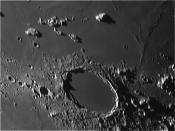THE SENSES
Concepts and ideologies, such as the "Veil of Maya", have tried to declare the philosophical interpretation of the "reality' of the world. These conceptions are helpful in analyzing the importance of our senses and to assess the belief that whatever we observe is not all reality but there is something beyond that apparent reality. Philosophers like Plato and Aristotle have developed their own theories relating to the reality of the world and which gives us the necessary knowledge to judge our senses as a means to observe the outer world. Plato has defined the objective world as an illusion and relates to objective appearances, which we call objects, things etc, as illusionary objects. His classical example of slaves staring at shadows can best define his conception of objects and things. According to him, the real world objects that we term as things or physical body are nothing more than shadows and those who limit their perception to these "shadows" are separating themselves from reality.
Hence, Plato's philosophy of real world implies that whatever we experience in our daily lives, through our senses, is in fact an illusion and the reality is something beyond that illusion.
Plato's philosophical doctrine implies that not one of us actually lives in external reality and even if we did we were unable to understand it. When we are experiencing any situation such as watching a landscape or walking across a road, we are actually assigning the meaning to the external "real" world through our visual cortex. Whatever we see around us is believed to be an illusion, called by the philosophers as the "Veil of Maya".
The conception of Maya, as defined by the metaphysicians, is that whatever we can see, feel, hear sense through our five senses is...


